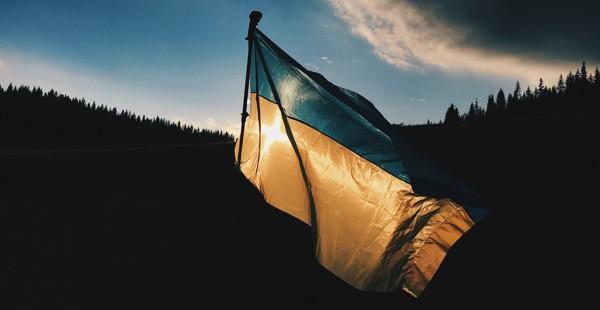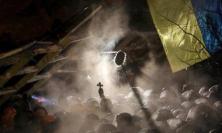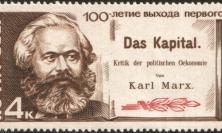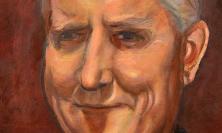24 August is not only Ukraine Day, but it also marks a year and a half since the Russian invasion of Ukraine on 24 February 2022. Elizabeth Harrison offers us an overview of the way in which religion is woven into the fabric of the history, culture and relationships between and within the two modern states.
Ukraine is a beautiful country with a rich culture and history coloured by its relationship with its nearest neighbours, including Russia. The Slavic peoples probably originated in the lands now known as Poland, Ukraine and Belarus, but spread out to cover what is Russia, and other lands to the east and west.[1] Subsequent centuries have formed these lands into the states we know today.
It could be said that Ukraine and Russia share a founding legend, and religion plays a central part in this story.[2] When Vladimir the Great, Prince of Novgorod and Kyiv in the tenth century, decided to become Christian, he brought Orthodox Christianity to his lands, including Kyiv. Later Russian dynasties traced their lineage back to Prince Vladimir. According to the ‘Primary Chronicle’ (purported to be written by Nestor in the early twelfth century), Vladimir chose Orthodox Christianity over Catholicism and Islam because his emissaries were confounded by the beauty of Orthodox worship.[3]
The majority of modern-day Ukrainians are Orthodox Christians, but there is a not insignificant minority of Ukrainian Greek Catholics (as well as some Roman Catholics, Jews and other religious minorities). The Ukrainian Greek Catholic Church came about as a result of the Union of Brest in 1596, when several bishops in the territory of what is now Ukraine sought to reunite with the Roman Catholic Church under the papal primacy, with encouragement from some of the Jesuits.[4] It is perhaps unsurprising that this move was a cause of conflict with their Orthodox kindred then and since.[5]
Regions of modern Ukraine were once part of the Russian Empire, while other areas fell under the sovereignty of the Polish-Lithuanian Commonwealth, the Prussian Empire and the Austrian Empire at different times. In the twentieth century, Ukraine became part of the Soviet Union: the old Tsarist empire arguably had been subsumed into a new socialist form. This chequered history (only very briefly summarised here) accounts for the linguistic, ethnic and confessional differences in modern day Ukraine. Many Ukrainians speak both Ukrainian and Russian, while some have a strong preference for one language over the other. In the last thirty years, since the end of the Soviet Union, Ukrainians have increasingly seen themselves as European – although this did not automatically mean that some did not have common bonds with their eastern neighbours in Russia too, especially in terms of language, culture and family ties. It is important to remember that while the current iteration of the Ukrainian state is relatively new (being founded in 1991) in another sense, the Ukrainian state (as well as the Russian state) could be said to be a thousand years old.
When Russia began its full-scale invasion of Ukraine in February 2022, many area specialists and commentators were shocked. The lead-up to the war had been evident from at least 2014, when Russia annexed Crimea, but it had been possible for a long time to view this as a discrete event brought about in part by the particular significance of Crimea to the Russian state. The history of Crimea is complex, too: Russia had originally annexed Crimea in the eighteenth century from Turkey. The peninsula, which is almost an island, was essentially part of Russia before being ceded to Ukraine in 1954. In the years preceding the recent annexation of 2014, Russia had stationed its Black Sea Fleet in Crimea, so signs that Ukraine was becoming more pro-Western in its stance were a security concern for the Russian government. For years, much of Vladimir Putin’s rhetoric could be dismissed as posturing by commentators. Many Ukrainians felt differently, however – at the beginning of 2022, as the rest of the world looked on in horror as tanks rolled and bombing started, they said that war had not only been inevitable, but that it had been going on since 2014. Yet with this entwined history and culture, how could the Russians bomb Kyiv, cradle of the Russian state and Russian Orthodoxy?
Putin uses Russian and Ukrainian history to excuse Russia’s actions in Ukraine. In his speeches, he draws on various historical claims to support the war: sometimes he refers to recent history, sometimes to events from the 1990s, sometimes to the Soviet period. Using history to support acts of war is hardly new, although the particular ways in which Putin and his allies have formulated and used history to support their theories is unique. Putin has claimed that Ukrainians and Russians are one people. At the same time, Putin highlights religious differences between Russia and Ukraine:
The Polish Catholic nobility received considerable land holdings and privileges in the territory of Rus. In accordance with the 1596 Union of Brest, part of the western Russian Orthodox clergy submitted to the authority of the Pope. The process of Polonization and Latinization began, ousting Orthodoxy.[6]
The language of ‘polonization and Latinization’ is key here: Putin implies that Western influences have somehow ‘infected’ Ukraine and he uses this as an excuse for the terrible actions of the Russian state. However, the roots of these ideas go back several centuries, drawing on Russian nationalist ideas of the nineteenth and twentieth centuries.
There are two major strands of thinking about Russian national identity which have shaped modern Russian culture. The Westernisers argued that Russia must look to Europe and the West to emulate it. They followed in the steps of Peter the Great, who built St Petersburg according to European style. According to the Slavophiles, on the other hand, Russia should take its own, distinct path, based on the riches of its own culture. Whatever their attitudes towards the West, Russian thinkers and writers have long defined the Russian national idea in relation to notions of the West. This debate particularly came to prominence in the nineteenth century, and can be charted in polemics, novels and even poetry of the period.
Although Roman Catholics are a tiny minority in the present-day Russian Federation, and indeed constituted a small minority in the various iterations in the Russian Empire of the nineteenth and early twentieth centuries, Catholicism (and the Catholic Church) has had a great impact on Russian history and culture. Attitudes to Catholicism are inextricably linked with the idea of the West.
There is a significant element in Russian thought of pro-Catholicism. In the nineteenth century, the Russian philosopher Petr Chaadaev lamented the lack of Catholic influence on Russian history and, in particular, admired the papacy as a source of unity.[7] Later, the theologian Vladimir Solov’ev developed these views and even began to make personal steps towards the unity of the churches (although he did not personally convert).[8] Solov’ev was deeply attracted to the universal qualities of Catholicism, which he found lacking in Russian Orthodoxy at that time. The theologian Sergei Bulgakov had a pro-Catholic phase in his thought as well. The poet Viacheslav Ivanov took this a step further by converting to Roman Catholicism in the 1920s and writing poetry about his love of the Catholic faith.[9] For pro-Catholic writers there was something problematic about the close ties between the Russian Orthodox Church and the Russian state. Instead of a theocracy, the Russian Empire was built on a caesaropapist model, with all its faults. In their understanding, Russian national identity could be comfortably subsumed into Catholic identity without major conflict: they deeply admired Catholicism and its influence on Europe, yet also thought that the Russian national idea had something to offer the world.
In contrast, the majority of writers chose to define Russian national identity in opposition to Catholicism. The Slavophiles of the mid-nineteenth century wrote of the iniquities of Catholicism, connecting the papacy to violence.[10] They found true unity and universalism in the Russian Orthodox tradition, using the term sobornost (which could be translated as ‘communality’ or even ‘synodality’) to describe a quality they found lacking in the Catholic West. In the writings of Dostoevsky, we find the continuation and deepening of these views: in his fiction and non-fiction writings, the author (or his characters) accuse Catholicism of being the source of Western rationalism, atheism and socialism.[11] Catholicism is the faith of the antichrist, and is even linked with cannibalism.[12] For many Russian writers the papacy was a focal point of their ire, and the pope himself is sometimes depicted as an antichrist. A second place on this anti-Catholic pantheon was reserved for the Jesuits. A fear that the Jesuits could convert people through their powers of persuasion is present in works such as Alexander Pushkin’s Boris Godunov, Lev Tolstoi’s War and Peace, and Dostoevsky’s The Idiot.[13] (This idea partly stemmed from the fact that a few prominent Russian noblemen of the nineteenth century did in fact convert to Catholicism and become Jesuits). Pope Francis has spoken several times about his admiration for Dostoevsky: this is ironic, since the conclusion one reaches on reading Dostoevsky is that a Jesuit pope would have been among the Russian writer’s worst nightmares.[14]
Anticatholic sentiments in nineteenth-century texts (from polemics to poetry) are often linked with relations with France, Poland and Germany. In particular, the various Polish uprisings in the nineteenth century did much to stoke anti-Catholic sentiment in this period. In comparison, there are comparatively few references to Ukraine in these nineteenth-century writings (with the prominent exception of works like Taras Bulba by Nikolai Gogol). This is partly because, at the time of writing, Ukraine was part of the Russian empire and not a state in its own right, and therefore not seen as part of the Western European ‘threat’ to Russian national identity in the same way as Catholic Poland, Bismarck’s Germany, or Pope Pius IX and papal infallibility. However, recent events suggest that by the twenty-first century, Ukraine’s position in regard to Russia and the rest of Europe had significantly changed.
There is no doubt that the thinking of Putin and other Russian nationalists of the twenty-first century emerges from the anti-Catholic Russian nationalist tradition discussed above. Russian nationalists such as Vladimir Putin heavily borrow from alt-right preoccupations with ‘gender ideology’, ‘cancel culture’, and other signs of the decline of the West as they see it. They mix these ideas with geopolitical concerns about the role of NATO and the EU, adding in their fixation with the Nazis in the Second World War, and graft these on to the ideas of Russian nationalism from the nineteenth and early twentieth century to create a particularly toxic cocktail. In other words, the war is a result of a clumsy fusion of historically rooted antagonism, security concerns, and a very modern ideology.
In the midst of all this, Pope Francis has sought to work for peace in the midst of war, repeatedly speaking of the need for dialogue, offering to work as an envoy to Russia, all the while expressing profound sorrow over the sufferings of the Ukrainian people. The pope’s attempts to strive for peace have not been uncontroversial, not least because some see his actions as too conciliatory towards Russia: for many, the only appropriate end to this war would be the withdrawal of all Russian troops from Ukraine, recognition of Ukraine’s 1991 borders, and presumably reparations.
The image of Catholicism globally is often of the Church as an earthly power. In the Russian case, this is doubtless not helped by the links between the Russian Orthodox Church and the state (which have manifested never more clearly than in the past eighteen months, with the words and actions of Patriarch Kirill, who is vocal in his support for the war). Greater acknowledgement of the part played by the Catholic Church in previous centuries of conflict might at times prove helpful to furthering dialogue. The pope, however, clearly sees himself (and the papacy) as a figure of unity and a peacemaker. (Most Catholics would subscribe to this view of the pope, too.) Many Russians, and particularly Russian nationalists, would never see the papacy in this way. For them, Catholicism and the papacy are very much a part of the problem, a casus belli, and the pope cannot be viewed by them as a neutral figure, no matter what he does. From their point of view, Catholicism is an empire which has held sway over much of the West with the pope at its head. The pope is right, however, to continue to strive for peace and to seek to be a figure of unity in our war-torn world: in doing so, no matter what criticism he receives, he is doing what Christ would do. As Christians, whether Catholic, Orthodox or otherwise, we cannot but continue to pray and hope for peace and healing from the tragedies of this war.
Elizabeth Harrison has a PhD in Russian cultural history from University College London and is part of the Jesuit Institute team.
With thanks to Ben Phillips for his comments.
Further Reading:
- Elizabeth Harrison, The Development of the Image of Catholicism in Russian Literary Tradition: 1820-1949, PhD thesis (London: University College London, 2013).
- Geoffrey Hosking, Russia and the Russians: from earliest times to 2001 (Penguin: London, 2001).
- Aidan Nichols (OP), Rome and the Eastern Churches: A Study in Schism (San Francisco: Ignatius Press, 2009).
- Serhii Plokhy, The Gates of Europe: a history of Ukraine (Penguin: London, 2015).
- Andrzej Walicki, The Slavophile Controversy: History of a Conservative Utopia in Nineteenth-century Russian Thought (Oxford: Clarendon Press, 1975).
- Timothy Ware, The Orthodox Church (London: Penguin, 1997).
[1] Geoffrey Hosking, Russia and the Russians: from earliest times to 2001 (London: Penguin, 2001), p.29.
[2] For more on this see Serhii Plokhy, The Gates of Europe: a history of Ukraine (London: Penguin, 2015) pp. 32-35.
[3] Hosking, Russia and the Russians, p. 37.
[4] For more on this see Aidan Nichols OP, Rome and the Eastern Churches: A Study in Schism (San Francisco: Ignatius Press, 2009), pp. 338-347; Plokhy, The Gates of Europe, pp.88-90.
[5] Timothy (Kallistos) Ware, The Orthodox Church (London: Penguin, 1997), p.95.
[6] Vladimir Putin, ‘On the Historical Unity of Russians and Ukrainians’, July 2021, http://en.kremlin.ru/events/president/news/66181.
[7] ‘Lettre première’, in Petr Chaadaev, Polnoe sobranie sochinenii i izbrannye pis′ma (Moscow: ‘Nauka’, 1991), p. 87.
[8] See, in particular, Vladimir Solovʹev, La Russie et l’Eglise Universelle (Paris: Delamain, Boutelleau et Cie., 1922).
[9] See for example, ‘Mily sretenskie svechi’, in Viacheslav Ivanov, Sobranie sochinenii v 4 tomakh, ed. D. V. Ivanov and O. Deschartes ( Brussels: Foyer Oriental Chrétien, 1971),III, pp. 591-2.
[10] See for example, Aleksei Khomiakov, ‘Quelques mots par un chrétien orthodoxe sur les communions occidentales à l’occasion d’une brochure de M. Laurentie’ (1853), in L’Eglise Latine et le protestantisme au point de vue d’Eglise d’Orient, ed. B. Benda, (Paris: Lausanne and Levey, 1872), pp. 38-39.
[11] Fedor Dostoevskii, ‘Devnik pisatelia’ May/June 1877, in Polnoe sobranie sochinenii v tridtsati tomakh, ed. V. Bazanov et al. (Leningrad: Nauka, 1974), XXV: 160.
[12] See Fedor Dostoevskii, ‘Idiot’, in Polnoe sobranie sochinenii, VIII: 450-51 ; Fedor Dostoevskii, Dnevnik pisatelia, November 1877, in ibid., XXVI: 90.
[13] Elizabeth Harrison, ‘The Image of the Jesuit in Russian Literary Culture of the Nineteenth Century’, Modern Languages Open (Online Journal, 1:1, November 2014). http://www.modernlanguagesopen.org/index.php/mlo/article/view/38/38.
[14] For Pope Francis on Dostoevskii, see for example the text of a conversation with journalists from August 2013: https://www.indcatholicnews.com/news/23070.






